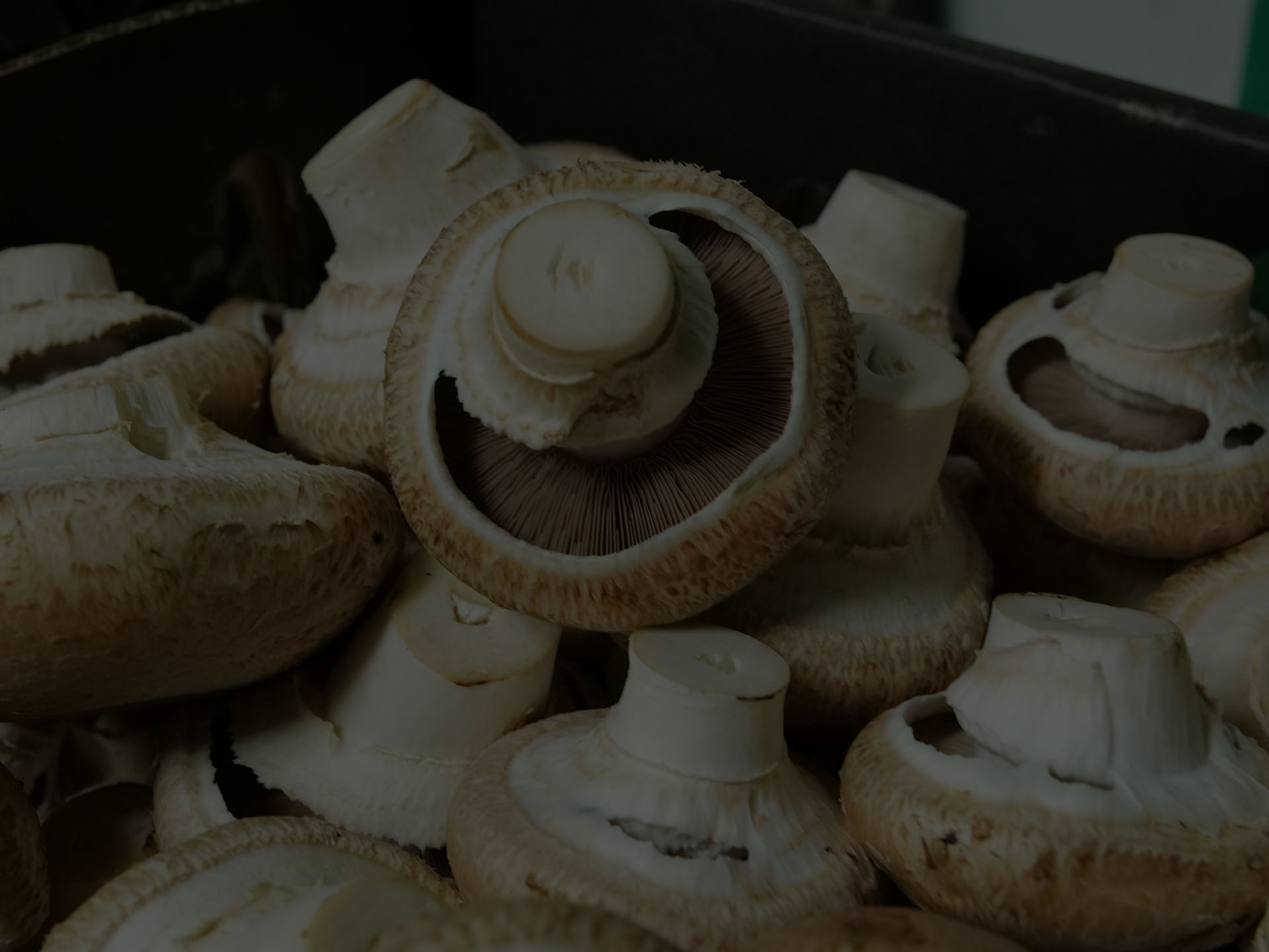Everybody GET IN QUICK!
Call us for Compost - (02) 4344 2468 (9am - 5pm)
All compost needs to be picked up from 167 Blackwall Road, Woy Woy. Phone (02) 4344 2468 (9am – 5pm) for compost enquiries.
Mushroom compost can be used as:
- Mulch
- Soil Conditioner
- Potting mix additive
Mushroom compost provides:
- Plant nutrients
- Helps soil hold water
- Changes soil Ph levels
- Promotes seedling growth
Mushroom compost is used to refresh garden beds and improve soil structure. It conditions clay and sandy-based soils with its organic ingredients and peat moss, which is used extensively throughout the horticultural industry to retain moisture.
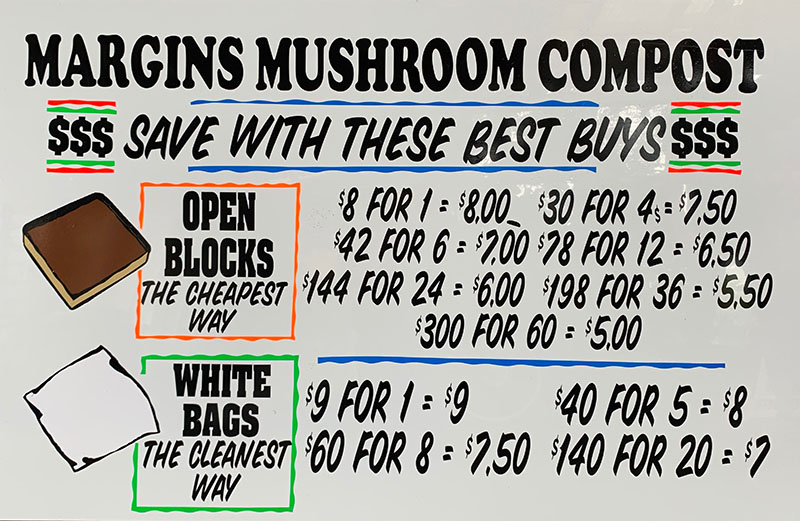
Our Mushroom compost is made from:
- Straw grown out near Gilgandra, NSW
- A biomass of sugar cane leaves from Broadwater near Grafton, NSW
- Dolomite (a natural mineral) is used to adjust the pH of the mixture – usually pH neutral
At our farm we add 40mm of peat moss to all our semi-compressed compost blocks to hold water, which will slowly be released into the compost block. The compost contains no genetically modified materials and we do not use any sprays or pesticides in the growing of our mushrooms. The compost is pasteurised at 70oC for 5.5 hours to kill off any competing fungi or pathogens before it is inoculated with grain spawn of the mycelium that we are producing.
The blocks are typically 550mm long x 420mm wide x 160mm deep. They weigh approximately 22kg each however variations can occur as they age and when they are stacked on top of each other when palletised.
Description of spent mushroom compost:
Spent mushroom compost is replaced on a mushroom farm because the yields it produces decrease after the third or fourth ‘flush’ (harvest) of mushrooms. Plants are not concerned that it is ‘spent’ mushroom compost as they consume different components than the mycelium – the organism that produces our mushrooms. Spent mushroom compost contains almost all the nutrients needed for good plant growth and it improves the structure of the soil.
The mycelium colonises the semi compressed blocks and secretes an enzyme that helps it digest lignum, which is found in all vegetative matter. The mycelium digests carbon chains as it does in nature to break down logs and branches on the forest floor.
From our farm to your home:
When we clean out a growing room we place the blocks of spent mushroom compost onto pallets that are approximately 1.2m x1.2m. We have 6 layer pallets containing 36 blocks and 4 layer pallets contains 24 blocks, which we wrap in clear plastic wrap to hold the blocks together.
We transport a pallet of 36 blocks on the front part of the tray of our ute and a 24 block pallet on the rear. This is our maximum load containing 60 blocks. Our ute has customised stiffened springs to be able to do this. We transport our compost as quickly as possible away from the farm so that we do not cross contaminate any of our newer growing rooms with our older compost. We then store this compost at our factories at 167 Blackwall Road, Woy Woy, NSW.
Approximately 25% of the spent mushroom compost that comes out of our rooms is bagged and sealed in heavy duty, white, printed plastic bags that are kept at the farm. The reason we do this is because it is a cleaner option for customers wanting to put the compost in their cars. It is dearer to purchase when the mushroom compost bags are sealed due to the additional cost of the bags and labour involved in bagging them.
Delivery details:
We deliver spent mushroom compost locally to Woy Woy Peninsula. We have a promotion on at the moment where:
$78 gives you:
- 12 blocks of mushroom compost
- Delivery
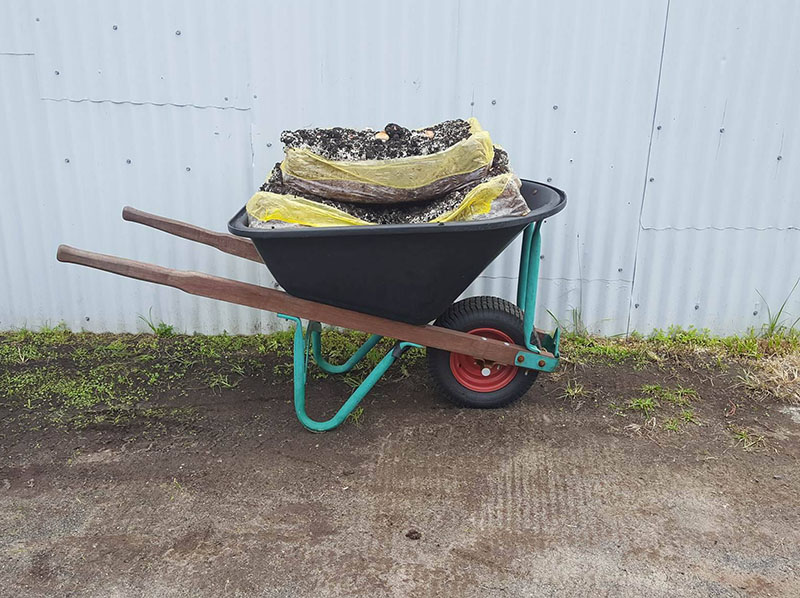
We unload the compost blocks into a wheelbarrow (3 x 4 blocks) and place them on or next to your garden beds if accessible.
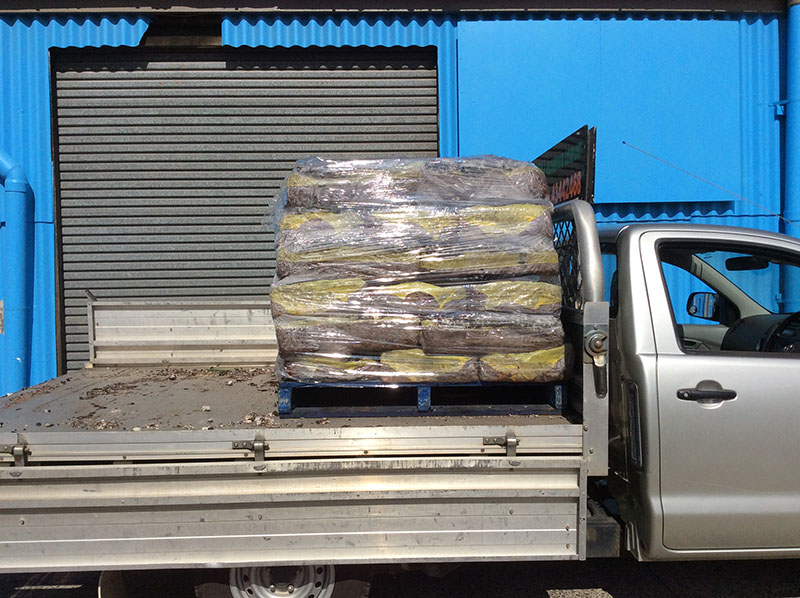
36 blocks pick up only $198.
If you would like your compost delivered, it will be charged out at $50 per hour. This includes the Ute and the Driver.
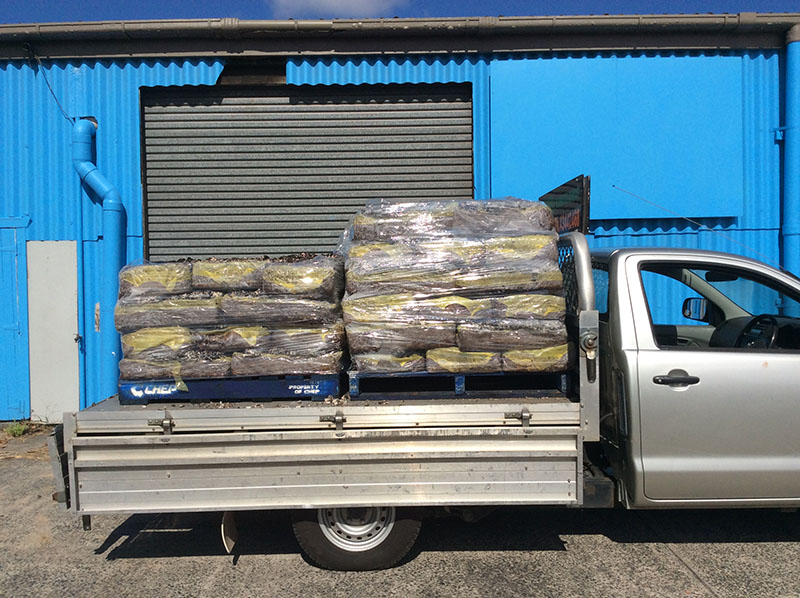
60 block pick up only $300.
If you would like your compost delivered, it will be charged out at $50 per hour. This includes the Ute and the Driver.
How to use mushroom compost in a new vegetable garden bed:
Once the garden beds have been formed and the soil has been broken up with a shovel, add 2-3 mushroom compost blocks per square metre and dig into the top 200mm of the soil mixing with the existing soil. Then water well to consolidate the beds. The beds can be planted straight away because the compost is already aged so will not damage the plants or seedlings.
Mushroom Compost is great for:
- Most flowering plants
- Trees and shrubs – Fruit trees will benefit from placing compost
- Vegetable gardens and herbs
- Establishing lawns (see photos below)
A customer’s lawn before mushroom compost
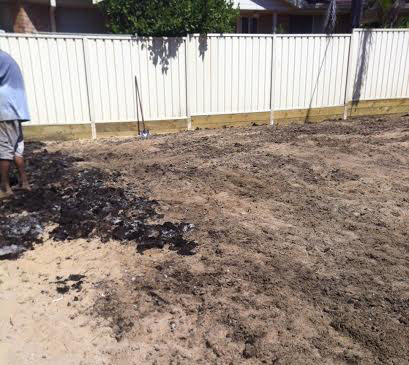
A customer’s lawn after mushroom compost
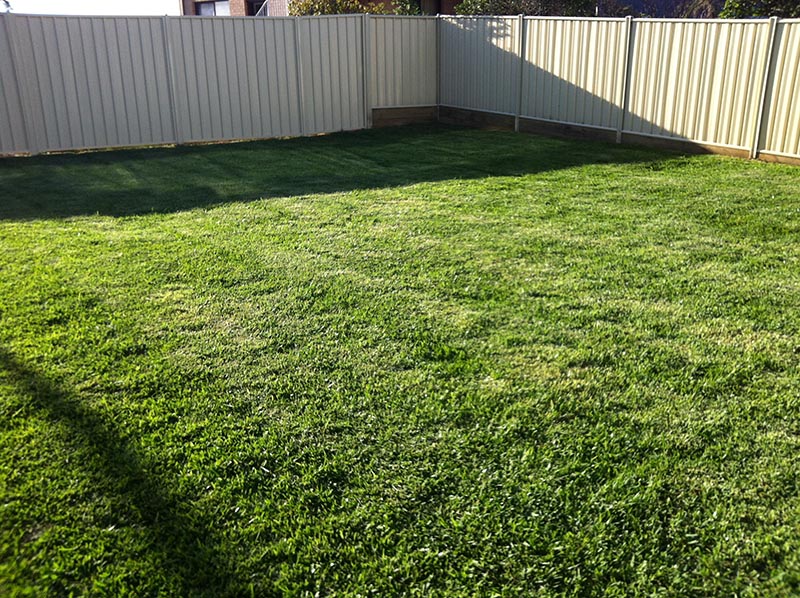
“Gardens love mushroom compost as a mulch and soil conditioner. Best of all, You can reap a new harvest out of spent product – That’s the ultimate in recycling”.
– Ben Swane – Garden Expert from renowned Swane family.
Mushroom Compost is
- Environmentally Friendly
- Organic, Recycles waste and Saves water.
- When the mushrooms have finished cropping, what remains is an ideal compost for the home garden.
A recent three year research program by the Victorian Department of Agriculture and Rural Affairs showed that mushroom compost:
- Contains almost all nutrients needed for good plant growth
- Supplies the nutrients slowly
- Aids seeding emergence
- Improves the structure of soil
- Conserves soil moisture
- Produces no harmful decomposition products


